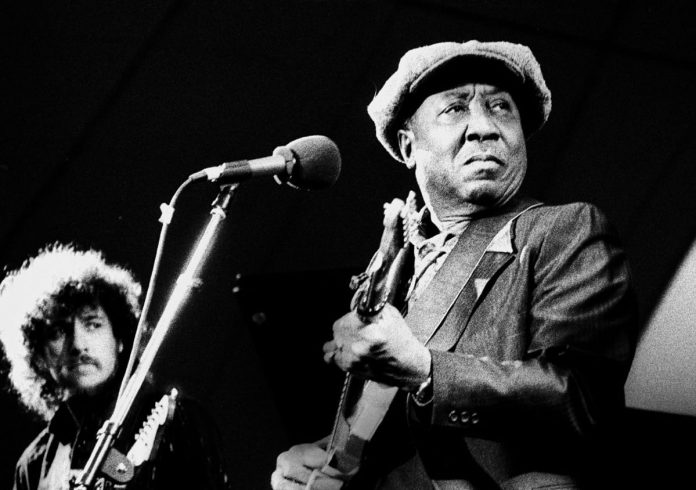
Mr McKinley Morganfield isn’t exactly notorious for voluble statements to the press, but no one, surely, has ever mistaken his reticence for lack of intelligence. In Billboard for April 10th, he admitted he could ‘play better than talk’, but he also made a number of statements likely to interest you:
‘I play Delta Blues. The blues I learned in and around Clarksdale, Miss., my home. There is no sugar added. And I guess that’s why the reaction from students is so terrific. They really don’t want the shuck when they can get the real thing.’
‘It’s funny thing how people, young people, got into the blues. Kind of through the back door, I guess. First they heard the Stones and the Beatles and all of the English groups. The people really like them. And then these groups gave credit to all of the American blues greats, so people like me, Chuck Berry, B. B. King, Luther Johnson and all the rest got recognition. It came from the English who took it from America and brought it back. Today the people on campuses across the country literally study the blues.’
He went on to express his mistrust of the large amplifiers favoured today for guitars: ‘The young people seem to like it, but I don’t know why. A big amp covers up things and I don’t mean only mistakes. I use an electric guitar with a small amp. I’ve been using one since 1954. I don’t believe it has changed my sound much, even though I would like to get a smaller amp. If I have changed on any of my records, it is generally to suit my record company (Chess). Sometimes they want different things, but I really don’t think my people want it.’
‘You know,’ he continued, ‘a lot of other people, white youngsters, can play the guitar. But the blues is the voice. That’s a major part of the blues like I play it. So I think unless someone goes down to the South and finds a youngster who can play guitar and sing the blues, maybe the Delta blues and perhaps blues in general would die. Now that would be too bad, but it might happen.’
Expressing gratification at the present size of the market for blues, he concluded: ‘ . . . playing the guitar and singing the blues is a lot easier than picking cotton or driving a mule’.















